#greek mythology retellings
Text
Tentative Ending (Cassandra and Helen)
I know it isn’t right. I know it isn’t just. But I have a hero’s soul, daughter of Zeus that I am, and I will not let myself be confined anymore. “Let there be war." The words leave my lips with a startling finality. “They deserve it, all of them.”
“You sound like Eris.”
“No.” I stare at her, chest beating around a cold, dead heart. “I left her.”
“Did you?” She clutches her robes, shrinking into herself. “Or does she still cling, even now?”
“My mind is my own, Cassandra.” I meant it as a statement. It sounds more like a plea. “It’s the one thing no one can take from me.”
“I see things you can’t, Helen.”
I straighten. “As do I.”
We stare, unmoving, unflinching, the waves pounding on the shore beneath us. My hand presses to my chest and finds no pulse.
And far away, I hear the echo of a scream.
#helen of sparta#helen of troy#greek tragedy#greek mythology retellings#greek mythology#the prophet cassandra#cassandra#cassandra greek mythology#eri#the goddess eris#eris goddess of strife#eris goddess of discord#eris#daughter of zeus the novel
7 notes
·
View notes
Text
Vague concept idea for a book:
Persephone x Hades retelling where Persephone is trans and so not only is it rebellion against Demeter (running away from the overbearing mother) and falling for Hades (who is a kind and loving partner) but it’s also self acceptance and hehehhehehe
I am scheming. I am plotting. I am writing.
#persephone#hades#persephone x hades#book idea#queer book idea#I wanna write this so badly#trans Persephone#good husband hades#greek mythology#greek mythology retellings#rewriting myths#greek myth retellings
11 notes
·
View notes
Text
books and a cup of tea (part 6): Percy Jackson and the Chalice of the Gods by Rick Riordan
I read the first Percy Jackson novel when I was in middle school. This book series is the reason for my love of Greek mythology. I love it to pieces and I probably always will.
The Chalice of the Gods gave me everything I wanted: the original trio back together, the Gods using demigods to sort out their problems and as their personal delivery service and interesting spins on Ancient Greek deities. And the humor. How could I ever forget the humor?
Personal highlight: Percy had to fight snakes and used a staff to fly away (don't ask, it makes sense in context, I promise).
Below me, the snakes watched in amazement.
"Farewell, my friends", I told them. "Be good to one another."
Then I ascended.
I wondered if I was leaving the snakes with a new religion; if they would tell stories to future generations about the strange rainbow god boy who tripped a lot before returning to the heavens. Or maybe they were just thinking, That kid is really weird.
Percy Jackson and the Chalice of the Gods by Rick Riordan, p. 149
#percy jackson#books and reading#rick riordan#percy jackson and the olympians#annabeth chase#grover underwood#fantasy books#greek mythology#greek mythology retellings
8 notes
·
View notes
Text
Clytemnestra's Bind [ARC Review]

Release Date: 15th June 2023
Overall Rating: ⭐⭐⭐⭐⭐
Tragedy Level: 😭😭😭
Before we get into this review, here are some trigger warnings to keep in mind before reading this novel: Brutal Murders of Children (especially in the first few chapters), Violence and Rape.
My Review:
Clytemnestra’s Bind by Susan C. Wilson is a Greek Tragedy in every sense of the phrase. The novel centres on Queen Clytemnestra of Mycenae. In the Greek myths, she is Helen of Troy’s twin sister and is known for killing her husband Agamemnon upon his return from the Trojan War. This was after he had sacrificed their eldest daughter, Iphigenia to the Gods. The novel details her life long before Iphigenia’s death.
The book is split into three parts. Part 1 starts with the invasion of her kingdom and having her first husband and child brutally taken from her. Part 2 covers her subsequent marriage to Agamemnon, her relationship with her three eldest children; Iphigenia, Electra, Orestes. Part 3 covers the crux of Clytemnestra’s notoriety in the Greek myths as she plots Agamemnon’s demise after Iphigenia is sacrificed.
Susan paints a beautifully tragic portrait of Clytemnestra and her life. I kept thinking how much can one woman take before she completely snaps. Susan fully understands the genre she is working with and completely delivers. I could feel our heroine’s pain at every single turn. I had to put the book down several times to sit with it and let the devastation wash over me. Yet I appreciate how the author had done it. It was unflinching and tragic without being too gratuitous. The novel provides an excellent example of female rage that showcases how Clytemnestra gets to the point of murdering Agamemnon.
I also adored how well developed Clytemnestra is and the insights we get from her point of view. So much of her life happens to her rather than her being the driving force of it. It is admirable to see how she still pushes through and tries her best to do right by her children after having lost her first family. Her relationships with everyone from her husband to his brothers, Menelaus and Aegisthus, her sister Helen to her children are all so unique and well written. The way she interacts with everyone is just so interesting to read and was a brilliant exploration into her character.
On its own, the novel is a tragic tale of a Queen who had gone through the most unimaginable horrors one can go through, losing most of the people she had loved and having her agency taken away from her. That is what makes her taking control of her life towards the end so satisfying.
As a reiteration of an old myth, Susan C. Wilson does an excellent job of building upon the lore. The hints and foreshadowing strategically placed all throughout the story as we know what is to come was exhilarating to read with a sense of dread knowing the tragedy looming amongst the characters.
All in all, I would recommend this book for anyone looking to read a well written tragedy that covers grief in a meaningful manner and illustrates the female rage in all its glory. For Greek mythology lovers, especially those who appreciate a good Greek Tragedy, this one was definitely made for us. Picking up on the foreshadowing felt like a fun session of ‘Connect the Dots’. That being said, once again I warn everyone to tread carefully as the book has depictions of rape, violence and brutal murders. Read safely and enjoy this book everyone!
Thank you to Neem Tree Press and NetGalley for an advanced copy of this book in exchange for my honest review.
#NetGalley#ARC Review#Clytemnestra’s Bind#Susan C. Wilson#Greek Mythology#Greek Mythology Retellings#Clytemnestra’s Bind by Susan C. Wilson#Neem Tree Press#Greek Mythology Blogging
8 notes
·
View notes
Text
Seeing people hate on Hades and Persephone retellings and lowkey agree because of how Demeter is treated.
Highly recommend reading Winter Harvest by Ioanna Papadopoulou. A retelling that gives justice to Demeter who is the main character of the original hymn and this retelling. It makes her such an interesting and complicate character. I’m sometimes unsure what to think of it, but I enjoy it more than most retellings of the myth.
Demeter’s grief, but also how she sees her daughter as an extension of herself and has to learn to accept how she changes is explored so well in the book. Complex but very much loving mother and daughter relationship.
6 notes
·
View notes
Text
Fantasy read-list: A-1.5
I thought I had concluded the whole “A” part of my big fantasy read-list last spring...
... BUT FATE WOULD HAVE IT OTHERWISE! In between then and now I found a collection of articles covering the evolution and chronology of fantasy literature, and they added a lot more of titles and informations that I think I will add to my “Fantasy read-list”.
My original “A-1″ post dealt with works of fiction and poetry that, beyond being masterpieces of the Greco-Roman literature, were the key basis of Greco-Roman mythology as we know it today, and massive inspirations for the later fantasy genre. Here, I will use an article written by Fabien Clavel asking the question “Is there an Antique fantasy?” to add some names to this list.
Not the names of works written in Ancient Greece or Ancient Rome however. No, when it comes to the great classics from “before Christ”, the same names are dropped - Hesiod’s Theogony, Homer’s Iliad and Odyssey, Virgil’s Aeneid, Ovid’s Metamorphoses... The only antique work Fabien Clavel mentions that I did not mention was Lucan’s Pharsalia. Also called “On the Civil War” it is, as the name says, an epic poem retelling the actual civil war that opposed Julius Caesar and Pompey the Great. Why would a historical work fit into the world of fantasy you ask? Because this epic retelling is pretty-fantasy likes, with several omens and oracles of the gods (including trees that start bleeding like humans), and even scenes of necromancy where the ghosts of the dead answer the protagonists’ questions.
Fabien Clavel’s article, however, focuses much more on the modern fantasy inspired by the Greek and Roman myths, that he classifies into four categories.
1) The retellings. Works of fantasy that retell classic legends or well-known myth of Greco-Roman antiquity. You find in this category the works of the fantasy author David Gemmel, be it his Troy trilogy (retelling of the Trojan war) or his Lion of Macedon trilogy (a more fantastical version of Alexander the Great’s life). You have Gene Wolf’s Soldier of the Mist, about the titular soldier, cursed with both retrograde and anterograde amnesia, and forced to find his way home through mythical Ancient Greece. There is C.S. Lewis’ last novel, Till we have faces, his retelling of the Cupid and Psyche myth from The Golden Ass. And in French literature, you have Maurice Druon’s Les Mémoires de Zeus, an autobiography of Zeus himself.
2) The “feminist” works - which technically are a sub-division of the “retellings”, since they are retellings of ancient legends and tales, but with the twist that the focus is placed on female characters, often side-lined or pushed away from Greco-Roman narratives. In this category you will find Margaret Atwood’s The Penelopiad (the Odyssey through Penelope’s eyes), Maron Zimmer Bradley’s The Firebrand (the Trojan War as told by Cassandra), Ursula LeGuin’s Lavinia (an exploration of the titular character, from the Aeneid). To get out of the English literature, you will also have the work of the Hungarian writer Magda Szabo, The Moment, or the Creusiad, another Aeneid retelling focusing on the character of Creusa.
3) The “appropriation” works. No, this is not used in a negative way but a neutral one. In this category, Clavel places all the works that are not a precise retelling of a given myth or legend, but rather a fantasy story reusing the elements, tropes, characters and settings of Greek or Roman mythology. You have Thomas Burnett Swann’s Trilogy of the Minotaur, Guy Gavriel Kay’s Sarantine Mosaic series - and in French literature you have Rachel Tanner’s Le Cycle de Mithra, an uchrony imagining what the world would look like if Mithraism had become the official religion of the Roman Empire instead of Christianity.
4) The “interaction” tales - aka, fantasy works that take elements of Greek mythology and have them be confronted by elements not belonging to Greek mythology. For example, there is the Merlin Codex series by Robert Holdstock, describing how Merlin the Enchanter resurrects Jason and the Argonauts in the Arthurian world. There is also in France Johan Heliot’s Reconquérants, an uchrony fantasy about a group of lost Roman colonizers who built a second Roman Empire in Northern America, and fifteen centuries later try to return to the “old world” they left behind only to find it overrun with mythical creatures. Finally, Clavel adds the Percy Jackson series, the new best-selling series of teenage fantasy fiction/urban fantasy a la “Harry Potter”, describing the adventures of an American teenage boy discovering the Greek gods moved to America, that he is the son of Poseidon, and that monsters of Greek mythology are trying to kill him.
Clavel concludes his article by saying how hard it is to pinpoint exactly where the influence of Greek mythology stops in the fantasy world, since elements of Greek legends are omnipresent and overused in the fantasy genre. To illustrate this he mentions the centaurs, that appeared in four of the classic works of fantasy for children that are however VERY different from each other: Harry Potter, the Narnia Chronicles, the Artemis Fowl series, and The Neverending Story.
As a personal note I will add to this list the recent success of Madeline Miller’s Greek mythology retellings, which I have seen regularly pop up in book shops and that some of my friends fell in love with (I never read them though) - be it her Song of Achilles (the life of Achilles told through the eyes of Patroclus) or her Circe (a novel about the life of the famous Greek witch).
#fantasy read-list#fantasy reading list#fantasy#book list#greek mythology#roman mythology#greek mythology retellings#greek myth retellings#aeneid#trojan war#ancient roman literature
2 notes
·
View notes
Photo




-Hades Sketch-
“And yet, I see vignettes at times. Glimpses into that dream, that fleeting dimension we call our youth.”
- Hades, The Game Has Changed
#greek mythology#hades#mythology#greek mythology retellings#literature#dark academism#dark academia#dark academia aesthetic#academia aesthetic#literature quotes#moodboard#aesthetic moodboard#mythology moodboard#hades x persephone#drawings#oc#art#illustration#black and white aesthetic#black aesthetic#cottagegore#dark aesthetic
17 notes
·
View notes
Note
Hi there! I saw that you studied Greek Mythology and I was wondering if you can give me some advice. You see, I want to write a screenplay about a retelling of Greek Mythology. I know little about mythology so I don't know what's considered a tasteful and enjoyable retelling story people who love mythology will like. In your opinion, what is deemed an unenjoyable or worn-out retelling?
My story revolves around a contest between the Gods and Goddesses in which three gods or goddesses give three humans a small amount of power to determine who will emerge as the strongest. When deciding amongst themselves, some of the other Gods and Goddesses do not consider Dionysus to be one of the Gods to lend their abilities. Dionysus, upset and determined to prove them wrong, travels to the human world in search of a suitable human.
He eventually discovers Violet Stone and bestows his abilities on her. Violet is now forced to confront creatures who have infiltrated from the underworld.
Thanks much!
Alright!
What my view on it is, and what I have heard from others a few times, is that it becomes bothersome when writers claim their stories are ‘totally accurate’ or a ‘reclaiming' of the myths. I’ll start with that last one. Usually, when authors say they ‘reclaimed’ something, they mean they put it in a modern, Feminist light. Aside from the fact that these stories are usually far from feminist, the word 'reclaiming' is incorrect, as reclaiming implies you take back something that was stolen/appropriated from you or your group, when these myths were never the authors’ in the first place.
They usually mean ‘taking it from the men who wrote it and giving the female characters a voice.’ In concept, that shouldn’t be too bad, but the authors tend to disregard the original context/culture/themes in the old myths, seeing ONLY their own, contemporary politics and ideas, and forgetting what these texts actually meant.
Besides that, they usually claim to be very well-researched and accurate. Then, when you read them, you find out they have taken most of their stuff from one or two sources, and haven't considered the wider themes or context these works are in.
A genuine problem is also that these stories usually aren’t progressive at all, instead using tons of degrading tropes and themes. Or otherwise said: they are simply trashy romance with a mythology backdrop. Yet, that isn’t an issue with retellings, that is an issue with romance writing and the publishing industry in general, so I’ll gloss over that one.
Another problem is that they usually say it’s ‘mythology as never seen before’ and then it’s a carbon copy of all the other stories that are ‘mythology as never seen before.’ Again, this is more a problem with the publishing industry then anything else, but I wanted to have mentioned it.
Stories that are 'inspired by' instead of 'reclaimings' or 'retellings' tend to be better received, as they simply take something that exists and create their own stories with it. So, if I can give an example, Mythology fans are often angry at Madeleine Millers' Circe and The Song Of Achilles, because they completely change/disregard characters/stories/themes, while Miller claims to be accurate and progressive. Yet, 'Lore' by Alexandra Bracken (Not to be confused with Lore Olympus, which,,, please don't have me mention that) didn't get this backlash, as Bracken simply took the Greek gods and made a Hungergames-esque story with it. She doesn't claim that she is reclaiming it or revamping all of mythology, she simply does something she thinks will be fun. For you, I think your fine, as you clearly try to make your own thing you think will be interesting and fun.
What also seems to work is people focussing on their ‘own’ characters. In your story, like Violet, for example. That is your own character you can shape and change. Don’t try to completely revamp mythological figures, it tends to not lend well.
A tip to you: Do your research. Read as many greek and roman sources as possible and try to get context too. Not so much that you go insane, but try to realise what symbolism is in these stories, how norms and values were different, how culture was different. How things were precieved in ancient times vs. how they are precieved now. Talk to people, too! Other people have different opinions on retellings then others (And in the end you might want to decide for yourself what you find valuable and what not, but I am asking you to think about all things said to you. Do those people have a point, and if yes, why? If no, why?).
And don’t forget: This is people’s ALIVE culture. Remember and respect that.
Also, I am not greek, neither am I a hellenic polytheist. If any people in those categories see this post and want to add to it, please do.
#greek mythology#retelling#greek mythology retellings#myth retellings#writing#writer#greek gods#mythology#culture
5 notes
·
View notes
Text
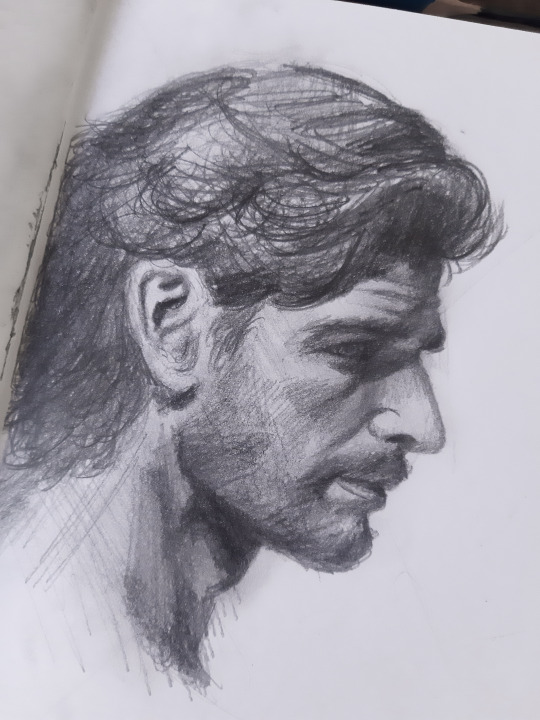
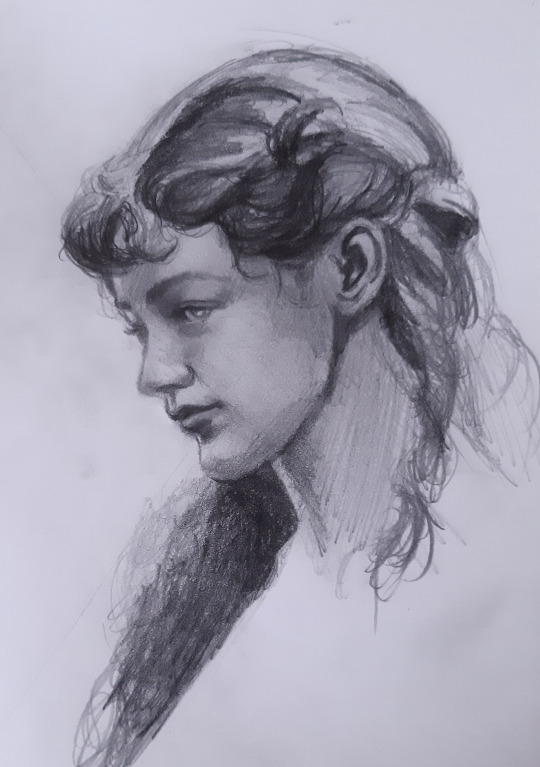
War and Wisdom
An uncanny ship
Greek mythology has been a fascination to many. it is timeless that many great artists made it as the inspiration for their Magnum Opus. With its many tales involving gods, demi-gods, fantastical creatures, and even the blacks and whites of humanity--there is no question why many still regard Greek mythology as one of the best literary works to ever exist.
With that in mind, the gods and goddesses had been the aged-old subjects of every known art, whether in writing form, a play, or in paintings.
And mine is no different...
Writing the novel, The Last Ballad of Olympus, I was immediately drawn to the concept of "star-crossed lovers" and even "enemies-to-lovers", hence why I have Athena paired with Ares--her most hated foe.
The pairing of the Greek god of war and the Greek goddess of wisdom is indeed uncanny, even to some considering it forbidden. But to my colourful head, Athena and Ares made sense.
What is war that does not involve wisdom?
War is chaotic--disruptive in nature. Many would hypothesise that ending war should involve love. it is the reason why Aphrodite and Ares are a couple in the mythology. However, in reality, to end the war, it must involve a great understanding and use of wisdom.
I understand Athena and Ares as a couple in a "fanfiction" is still something odd to some, but I see it as going beyond the norm without compromising much of the known myths and legends.
Read the story here...
WEBNOVEL
WATTPAD
#athena x ares#athenares#greek mythology#greek mythology retellings#greek gods#god of war#goddess of wisdom#goddess athena#god ares#athena and ares#webnovel#wattpad#enemies to lovers#fanfic
1 note
·
View note
Text
youtube
Hey! I'm B!
I am a student who is trying to get my video essay youtube channel off the ground! I'd really appreciate if you would watch my new video, about the Penelopiad by Margaret Atwood. I also post video essays on films, literature and television.
Thanks!
Check the youtube video description for trigger warnings as there are some sensitive topics dicussed in the video.
#bookblr#books#book community#video essay#youtube#youtube essay#new youtube videos#new youtube channel#video essay literature#video essay recommendations#literarture#magaret atwood#the penelopiad#mythology#mythology retellings#book#greek mythology#greek mythology retellings#Youtube
1 note
·
View note
Note
Are you going to start the book with Helen's first abduction, at the age of twelve? Or earlier? Or later? What is the earliest scene chronologically?
The first scene is going to be a prologue of Leda recognizing the swan as Zeus and her general feelings on being recognized and then abandoned by the gods. It's important for her characterization of how she treats Helen, her other children, and her husband. I had actually forgotten about Helen's first abduction, but I think it definitely makes for a good chapter one. I remember at least one account of her being eight at the time, which is what I'm gonna go with because I think it fits better with the timeline and themes. I already have this opening image of Helen strangling a rat to sacrifice to her father (Zeus) for a swift escape. The earliest scene I've started (I write out of order) is her meeting Eris
#helen of sparta#helen of troy#greek mythology retellings#greek tragedy#greek mythology#retelling#eris#the goddess eris
9 notes
·
View notes
Text

Rhea and Philyra
(Rhea is the earthly-colored one pointing an accusative finger at Philyra (brightly salmon-colored one in brown covers) nervously sweating at a pissed off Mother Goddesss)
I picked a salmon cause they are known for giving birth to their young and dying. Also I wanted some of the nymphs to be actual fishes cause it’s fun, so why not lol?
Rhea is threatening/warning Philyra about Kronos and how he cares not for her. Deeming Philyra possible traitor trying to overthrow her (Rhea).
Surprise, surprise Philyra isn’t, she’s just in love with Kronos and was kind of a gossip/info reporter for him. (Philyra has more of a role here in this than compared to her OG counterpart, I start to daydream and I end up with a whole vague storyline for them, anything in general lol)
She gives birth to Chiron and two other egg thingys, (Chiron was also a egg baby but he hatched kind of early so yeah, also the other two is Aphros and Dolops)
Kronos actually does care somewhat about Philyra albeit not to the equal mutual aspect like Philyra did but still he turns her into a linden tree.
On the right middle/bottom side you can vaguely see two horses running and a salmon with three eggs a bit farther behind
Thats all I think ???? I can’t remember the description from my instagram post so hopefully I didn’t miss something
Posting when nobody here >:D
(Lowkey miss the GM designs and stuff I have but my brain is rotting for another as of late so another time perhaps.)
#already posted on my instagram#fuck you instagram for making me try to log in /nsrs /hj#old art#Philyra fanart#i don’t know how to tag and I don’t want to clutter them so uhhh#greek mythology retellings#??#greek mythology fanart#I love my Rhea and Philyra designs#I need to draw them both again holy shit I love them
0 notes
Text
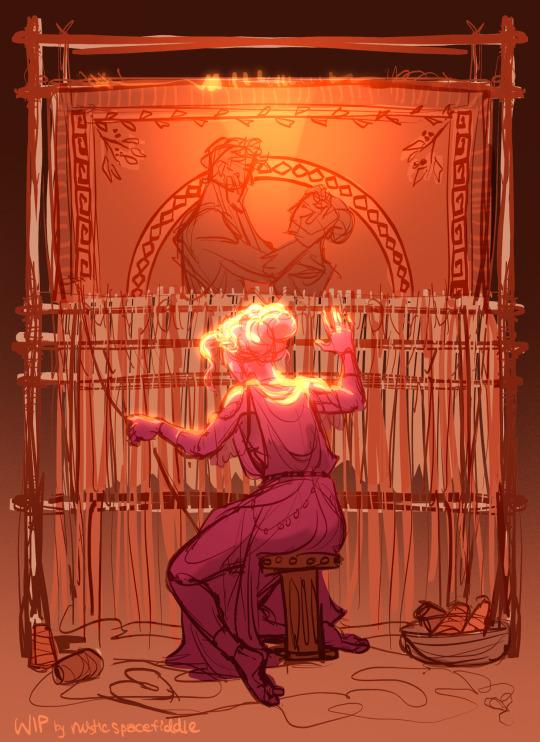
WIP of Penelope with her forever-unfinished shroud.
#epic the musical#epic penelope#greek mythology#greek myth retellings#epic the musical fanart#art#fan art#sketch#digital art#procreate art#rustic space doodles#artists of tumblr
6K notes
·
View notes
Text
To explain my chicken obsession:
* * *
Me: I’m enjoying drawing chickens for this commission.
Husband: ha ha Greek Myth Chickens!
Me: 🤔
I now present to you,
🏺Greek Myth Chickens 🐓
ILIAD EDITION
(drawn and originally posted in May 2021, coloured and reposted Jan 2023)
1) Egg-chilles and Patro-cluck (Achilles and Patroclus)
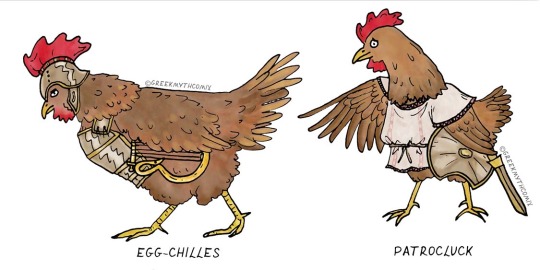
2) Mene-lay-us and Al-eggs-andros (Paris) (Menelaus and Alexandros [Paris])
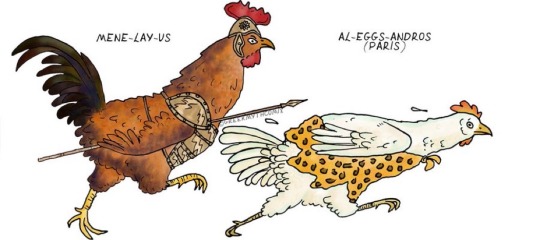
3) Egg-amemnon (Agamemnon)

4) Aph-roost-ite and Helen of Spur-ta (Aphrodite and Helen of Sparta)
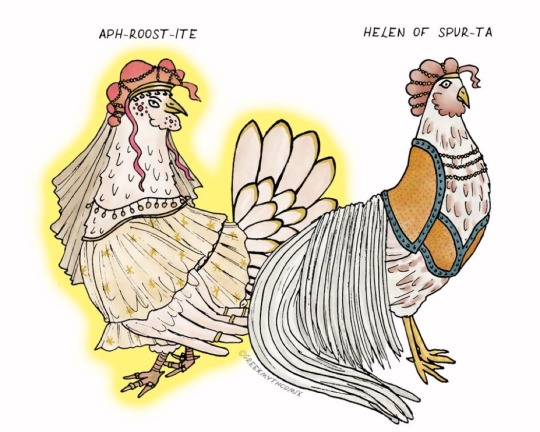
5) Nest-or (Nestor)
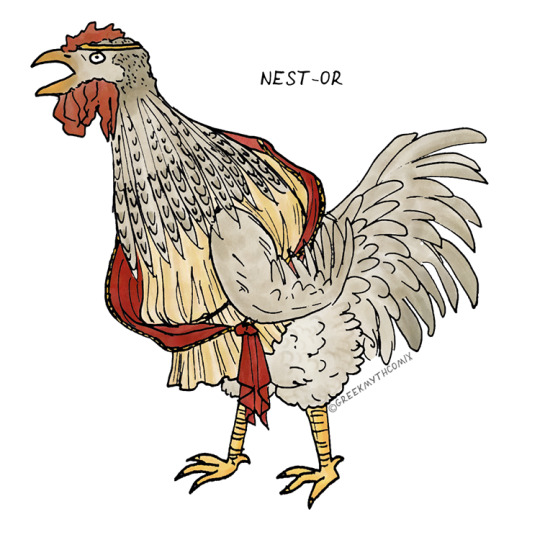
6) Androma-beak, Peck-tor, and Astyan-egg (Andromache, Hektor and Astyanax)
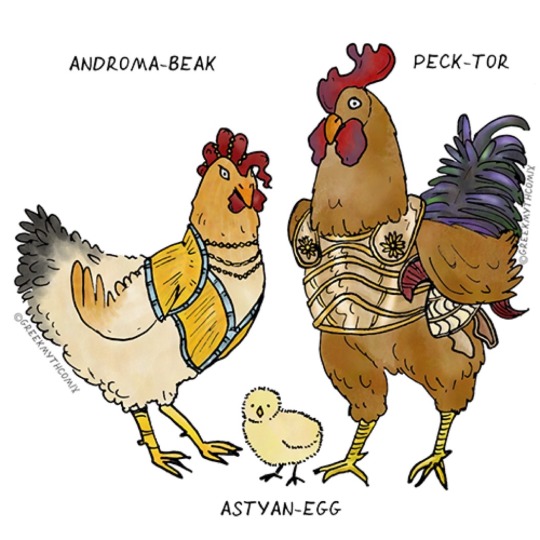
7) At-hen-a and Egg-dysseus (Athena and Odysseus)
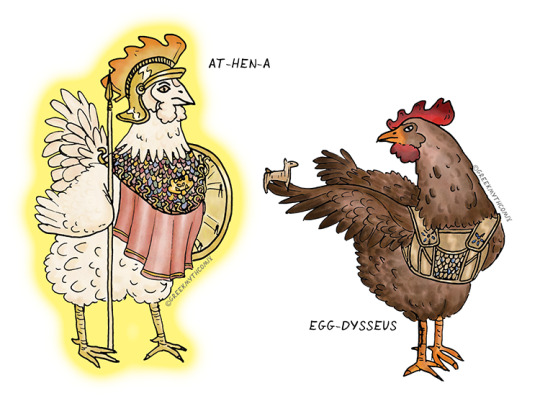
8) Preen-am and Peck-uba (Priam and Hekuba [Hekabe])
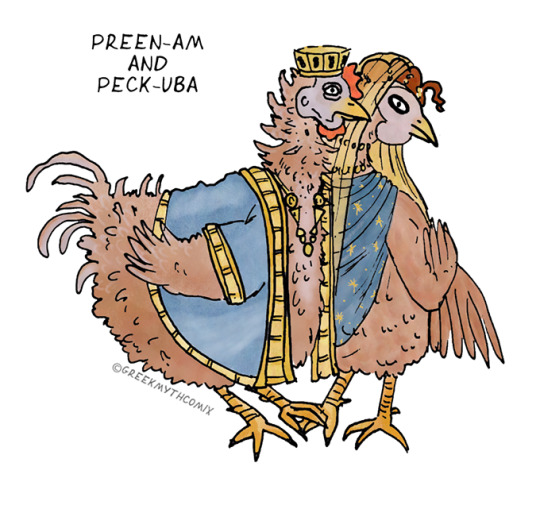
9) Brood-seis (Briseis)
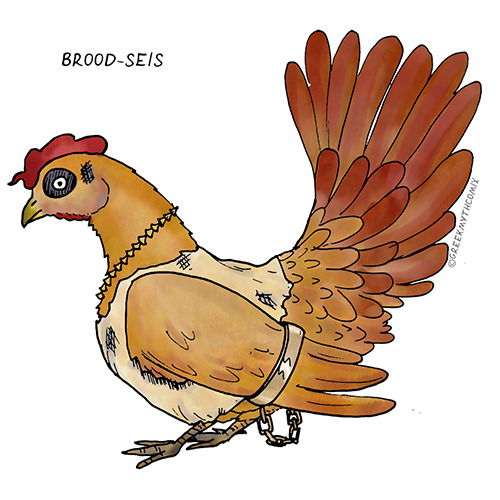
10) Diom-egg-es (Diomedes)
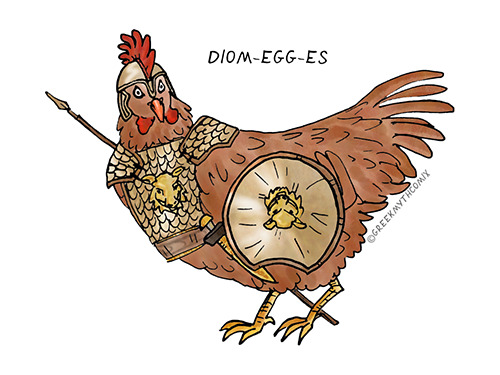
EDIT: Greek Myth and Roman History chicken MASTERPOST - https://www.tumblr.com/greekmythcomix/725538723329179648/greek-myth-roman-history-chickens-master-post Here Be More Chickens Cosplaying
(See next post for last 3 Iliad chickens- https://www.tumblr.com/greekmythcomix/722218945873051648/iliad-chickens-continued-11-lay-jax-tel-capon )
#Achilles#Patroclus#patroklos#akhilles#greek mythology#greek myth retellings#greek myth#comix#greek myth memes#Iliad#Homer#artwork#my artwork#Greek myth chickens#illustration#pun#fanart#chickens#tagamemnon#the Iliad#classics#classical civilisation
11K notes
·
View notes
Text
Intro To Dark Olympus by Katee Robert
Welcome to my little review series of Katee Robert' Dark Olympus series! This is in lead up to the latest instalment of the series, Cruel Seduction. I also just felt like taking a trip down the Greek mythology retellings lane.
A general summary of the series: It's set in a modern day city called Olympus with mortals versions of the Greek myth characters. Their power comes in the form of being rich, famous and powerful. It's fairly political in nature and each sector of the city is ruled by The Thirteen - the main thirteen Olympians we're familiar with in the original mythology.
I think what struck me about this series is that it was a hot romance take on myths I loved growing up so much. Katee also has pretty fresh interpretations of the characters and the stories themselves while still keeping true to the beats of the original myths.
So far there are 5 books in the series (including the prequel!) I have enjoyed the first three books in the series, can't wait to reread two of them for these reviews and start on the last two leading up to Cruel Seduction.
Here's an overview and the couples of each book [I'll update this list with links to my reviews here once I post them]:
Prequel: Stone Heart [Medusa & Calypso]
In the city of Olympus, people hardly dare to say Medusa's name aloud. She is Athena's agent, the one she sends when she wants someone to disappear. Medusa owes her life to Athena, and if staining her hands with blood is the only way to repay her debt, it's a small price to pay. Until Athena sends him to find Calypso, the mistress of wealthy politician Odysseus.
Calypso has done nothing worthy of a death sentence, and her conflicting feelings only worsen when Medusa first sees the woman behind the name. Calypso is beautiful, cunning and above all ready to do anything to save her life, including seducing her potential assassin. But what begins as a ploy to escape quickly turns into a real attraction. Because Medusa is not the cold killer that rumours suggest, and Calypso is much more complex than it seems...
Book 1: Neon Gods [Hades & Persephone]
Society darling Persephone Dimitriou plans to flee the ultra-modern city of Olympus and start over far from the backstabbing politics of the Thirteen Houses. But all that’s ripped away when her mother ambushes her with an engagement to Zeus, the dangerous power behind their glittering city’s dark facade.
With no options left, Persephone flees to the forbidden undercity and makes a devil’s bargain with a man she once believed a myth... a man who awakens her to a world she never knew existed.
Hades has spent his life in the shadows, and he has no intention of stepping into the light. But when he finds that Persephone can offer a little slice of the revenge he’s spent years craving, it’s all the excuse he needs to help her—for a price. Yet every breathless night spent tangled together has given Hades a taste for Persephone, and he’ll go to war with Olympus itself to keep her close…
Book 2: Electric Idol [Psyche & Eros]
In the ultra-modern city of Olympus, there's always a price to pay. Psyche knew she'd have to face Aphrodite's ire eventually, but she never expected her literal heart to be at stake...or for Aphrodite's gorgeous son to be the one ordered to strike the killing blow.
Eros has no problem shedding blood. But when it comes time to take out his latest target, he can't do it. Confused by his reaction to Psyche, he does the only thing he can think of to keep her safe: he marries her. Psyche vows to make Eros's life a living hell until they find a way out of this mess. But as lines blur and loyalties shift, she realizes he might take her heart after all...and she's not sure she can survive the loss.
Book 3: Wicked Beauty [Helen, Patroclus & Achilles]
In Olympus, you either have the power to rule...or you are ruled. Achilles Kallis may have been born with nothing, but as a child he vowed he would claw his way into the poisonous city's inner circle. Now that a coveted role has opened to anyone with the strength to claim it, he and his partner, Patroclus Fotos, plan to compete and double their odds of winning.
Neither expect infamous beauty Helen Kasios to be part of the prize...or for the complicated fire that burns the moment she looks their way.
Zeus may have decided Helen is his to give to away, but she has her own plans. She enters into the competition as a middle finger to the meddling Thirteen rulers, effectively vying for her own hand in marriage. Unfortunately, there are those who would rather see her dead than lead the city. The only people she can trust are the ones she can't keep her hands off—Achilles and Patroclus. But can she really believe they have her best interests at heart when every stolen kiss is a battlefield?
Book 4: Radiant Sin [Cassandra & Apollo]
There's nowhere more dangerous than Olympus...and no one more captivating than its golden god: Apollo. Keeper of secrets, master of his shining realm...and the only man I am powerless to deny.
As a disgraced member of a fallen house, Cassandra Gataki has seen firsthand what comes from trusting the venomous Thirteen. But when the maddeningly gorgeous and kind Apollo asks her to go undercover as his plus-one at a week-long party hosted by a dangerous new power player…Cassandra reluctantly agrees to have his back.
On one condition: when it's all over, and Apollo has the ammunition he needs to protect Olympus, she and her sister will be allowed to leave. For good.
Apollo may be the city's official spymaster, but it's his ability to inspire others that keeps him at the top. Despite what the rest of Olympus says, there's no one he trusts more than Cassandra. Yet even as their fake relationship takes a wicked turn for the scaldingly hot, a very real danger surfaces… threatening not only Cassandra and Apollo, but the very heart of Olympus itself.
I can't wait to dig in and let you all know what I think and why yall should read this series if you love romance and Greek myths!
#Dark Olympus#Katee Robert#Greek Mythology#Greek Mythology retellings#Hades/Persephone#Psyche/Eros#Medusa/Calypso#Achilles/Patroclus#Helen/Achilles/Patroclus#Cassandra/Apollo#Romance Blogging
4 notes
·
View notes
Text
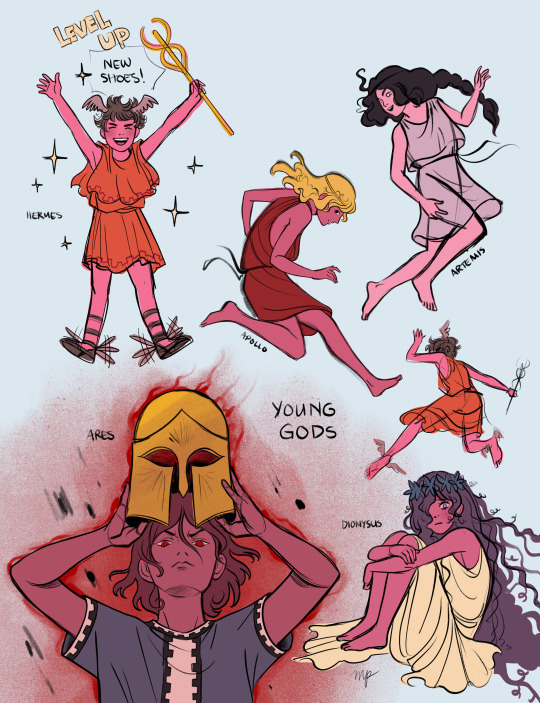
bby god sketches
3K notes
·
View notes